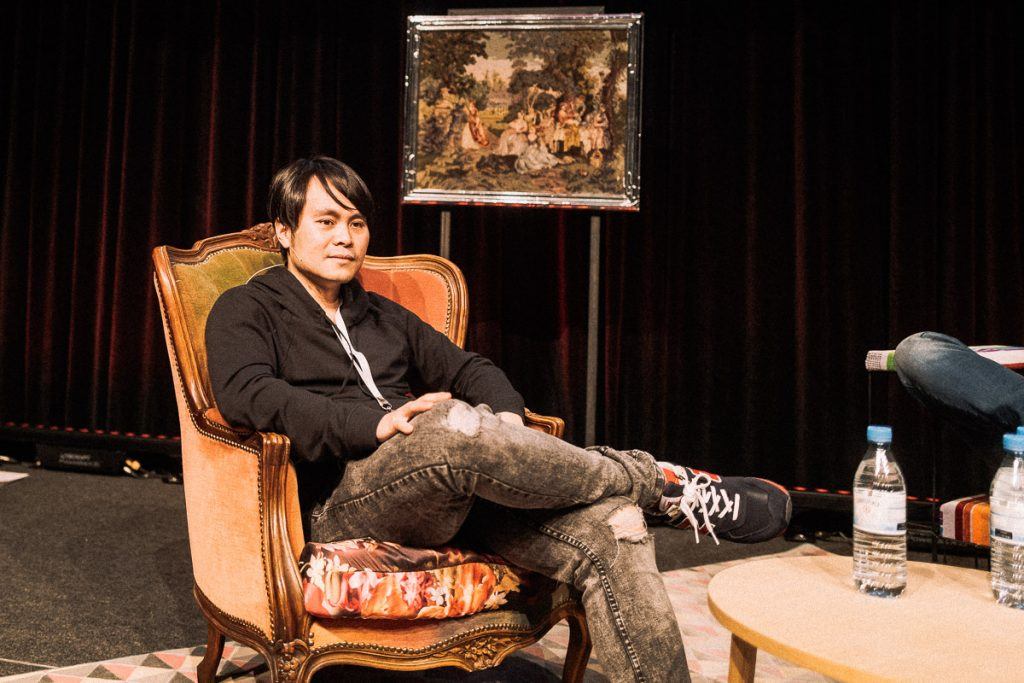Podcast Episode 35 – Why industrial IoT startup Crate.io can easily do distributed databases but still had trouble finding product-market fit
29. April 2020
Being at number one at Hacker News or winning the TechCrunch Disrupt Startup Battle might help create a hype around your startup. But it doesn’t help finding the product-market fit. Jodok Batlogg, CTO at industrial IoT startup Crate.io explains in this episode why they needed six years to finally hit product-market fit.
Digitale Leute Insights is the podcast for passionate product people. We interview product developers from around the world and take a closer look at their tools and tactics.
Host: Oliver Thylmann
- In this episode, you will learn:
- Jodoks’ journey from being the CTO of StudiVZ, a social network with 60 million users to becoming the founder and CTO of Create.io.
- Why Crate.io took about six years to product-market fit and how they achieved it.
- How Crate.io manages billions of data points at McAffee and JSON recordings at factories with over 950 sensor types.
- Why diversity is so important for Crate.io as a remote-first company.
When Jodok Batlogg was the CTO at StudiVZ, the largest social network in Germany before Facebook got traction in Europe, the biggest problem they had was data storage. The data of 60 million users were running on about a thousand servers and Docker had not been invented yet. It was clear to Jodok that the amount of data would be growing and the problems with it.
Four years later, he founded Crate.io with a prototype of CrateDB. The open-source distributed SQL database management system used Elastic Search when that was still “a crazy guy sitting in Israel coding at a new kind of approach on how to deal with distributed computing,” as Jodok puts it in this episode.
His startup enjoyed two hypes early. The first one was a Hacker News article that resulted in the company going into the “Big Data SQL in real-time” direction. The second boost came after winning the TechCrunch Disrupt Startup Battle, which Jodok completed with a broken fibula. Although it helped to keep the company alive with bringing in investors, they were still to find product-market fit, Jodok admits. “On the product side, it was fine, but from the going-to-market side and on the monetization side, it was totally wrong.”
How to gain product-market fit
The turnaround came as late as five years after the foundation when the company did a customer survey. The result was a transformation to a more enterprise-focused company concentrating on industrial IoT. They switched the open-source model, which allowed the customers to perceive Crate.io as a product worth buying. It also helped the sales department actually to sell the product. Before that, even hiring extra sales employees had resulted in zero sales.
Today Crate.io is a remote-first company, led by Jodok Batlogg as CTO from Dornbirn, a small town in Vorarlberg, Austria. The mountainous country and Jodoks attempt to not use his Audi anymore leads him to try out all the new electric boards, bikes, and gadgets on the market. He shares this passion with our host Oliver Thylmann. This is why they close this episode by discussing electromobility and paying it with bitcoin.
LinkedIn: Jodok Batlogg
About the Host
Oliver Thylmann is a serial entrepreneur based in Cologne, Germany. He is the co-founder of Giant Swarm, a 60-person SaaS company providing managed microservice infrastructure to big enterprises.




